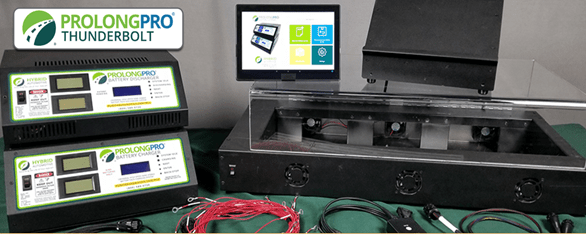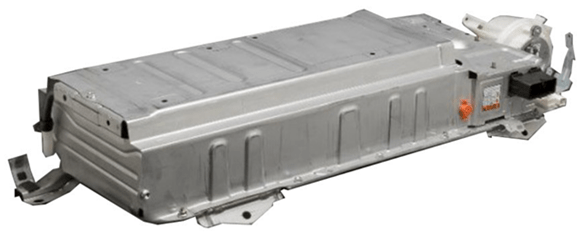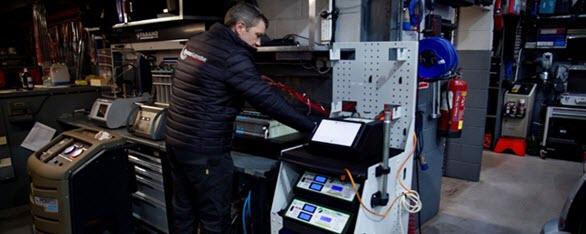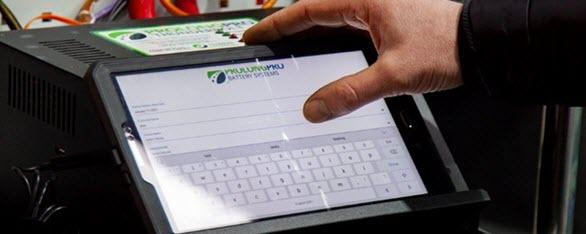Home > Repairs & Servicing > Hybrid And Electric Vehicles Servicing & Repairs > Hybrid Battery Reconditioning
Hybrid Battery Reconditioning
We are delighted to announce that are now equipped to service and recondition NiMH (Nickel Metal Hydride) hybrid batteries in most models of Toyota Honda and Lexus vehicles. NiMH batteries are installed in most hybrid Toyota, Lexus and Honda vehicles up to 2020.
On Car Battery Servicing
Batteries need tune-ups, too.
Are you ignoring your hybrid battery? You perform preventative maintenance to extend the life of your engine (like an oil change every 10,000 kms)—why wouldn’t you do the same to extend the life of your hybrid battery? The battery is the most neglected—yet potentially most expensive—component in any hybrid car. Prolong® Battery Systems restore hybrid battery balance to improve vehicle performance, ensure a safe ride and nudge up your MPGs. Priced at a fraction of the cost of replacing your hybrid battery, Prolong Battery Systems servicing is one of the most sensible investments any hybrid owner can make.
We can perform in vehicle servicing on your battery without removal from the vehicle. This process takes 1.5 to 8 hours depending on the vehicle.
We can perform this servicing/preventative maintenance on the following brands and models
For more information on Hybrid and EV vehicle servicing and repairs that we provide visit the Hybrid and EV servicing page here
- • Toyota = Prius 2004 to 2020, Camry Hybrid 2006 to 2016, Highlander Hybrid 2006 to 2016 (and possibly other Toyota models please enquire for other models)
- • Lexus = 2006 to 2016 RX400H and RX450H, 2007 to 2017 GS450H (and possibly other Toyota models please enquire for other models)
- • Honda = 2003 to 2011 Civic Hybrid, 2005 to 2007 Accord Hybrid, 2000 to 2006 Insight, 2009 to 2014 Insight (and possibly other Toyota models please enquire for other models)
Battery Reconditioning
What causes hybrid batteries to degrade and fail?
Eventually all batteries will fail. Hybrid Electric Vehicle (HEV) NiMh batteries have a life cycle. When the hybrid battery does not last as long as the rest of the vehicle, replacing it can costs several thousand euros and creates hazardous environmental waste. Each hybrid battery ‘pack’ is comprised of many individual battery cells. Consumer hybrid electric vehicles have anywhere from 120 to 240 individual battery cells. Each cell is about the size of a typical D cell battery.
At the beginning of the hybrid battery’s life, each cell easily provides all of the energy needed to propel the vehicle and to stay in sync with other cells in the battery pack. As time progresses, the battery will start to degrade and the cells will fall out of sync with each other. Results of this degradation include:
(1) usable cell capacity is reduced
(2) cells drift out of balance with each other (voltage delta)
The speed of this deterioration is determined by a variety of factors, including vehicle make/model, climate, driving habits, variation in battery cell construction, and more. This battery deterioration means that the individual cells within the battery pack can have a different charge level and capacity – they are no longer ‘in sync’ with each other. Some cells can be ‘full’ while other cells in the same battery pack are in a ‘reduced’ state. The overall battery pack performance is limited by the vehicle’s battery management system to the weakest cell when discharging and the strongest cell while charging. As a result, the wider the cell imbalance, the narrower the usable range of the hybrid battery becomes. The car’s battery management system uses only a limited range of the battery cells actual physical capacity (80%-40% for Toyota and 80%-20% for Honda). As the usable capacity decreases and the cells become further and further out of balance with each other, the vehicle is able to use less and less of the batteries actual capacity. The vehicle cannot correct this imbalance problem on its own. The car cannot force the cells back into balance with each other.
If you have any of the following DTC codes you may have faulty cells in your battery. Honda: P1447, P1449, P1600, P0A7F, P07AF, P1433. Toyota: P0A80, P0A7F, P0AFA, P3006, P3011, P3012, P3013, P3014, P3015, P3016, P3017, P3018, P3019, P3020, P3021, P3022, P3023, P3024, P3025, P3026, P3027.
We can fully recondition your battery pack fixing the above codes and restoring full life back into your battery. All reconditioned battery’s come with 1 year’s warranty.
Reconditioning takes 1 to 2 days (subject to parts stock) due to the rigorous testing and deep discharge/charge cycles performed on the battery. Any cells which fail the tests will be replaced. All cells are then balanced to ensure maximum efficiency. In many cases we will have a reconditioned battery on the shelf.
N.B At the moment we only provide this service for Prius 2, Prius 3 and Aqua NHP10/Prius C battery packs but will be adding more models soon.
Trade Services
We supply garages throughout Ireland with exchange reconditioned battery’s ready to be installed in the vehicle. We will provide instructions and help with any battery’s supplied. If we do not have a reconditioned battery on the shelf we can get your unit collected and have it back to you within a few days.





